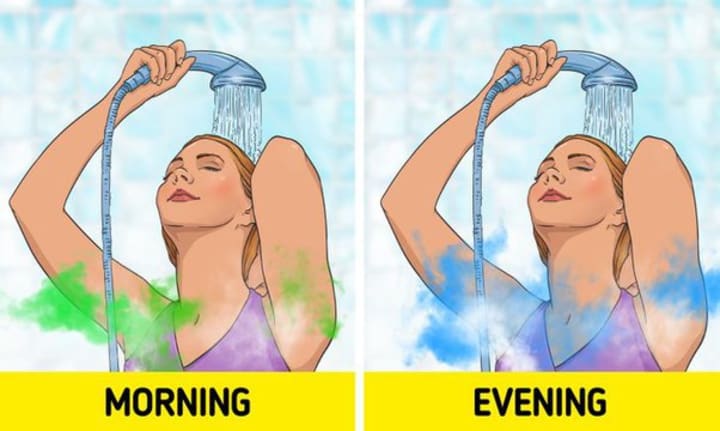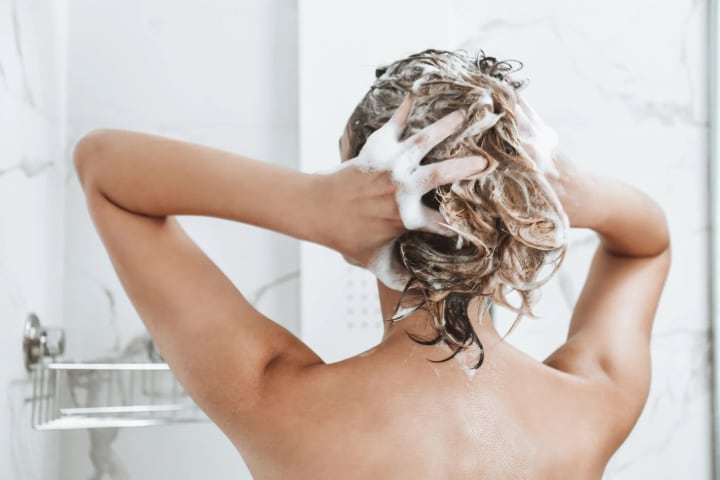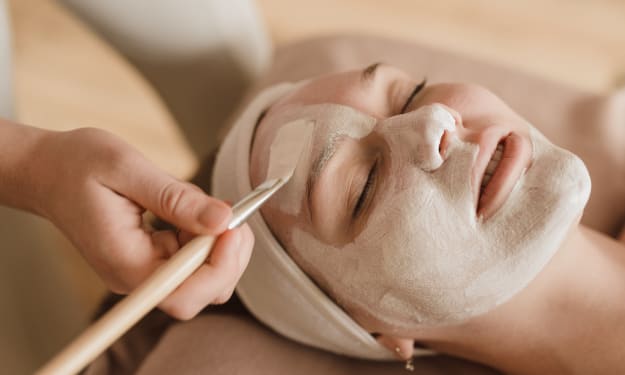When Should You Take a Shower—in the Morning or the Night?
A morning freshen up or an evening wind-down?

Which comes first, a shower before bed or first thing in the morning? If you're the kind of person who thrives in the morning, you probably like to get ready for the day by giving yourself a quick shower first thing. And if you're a night owl, you're probably of the firm belief that the best time to shower is in the middle of the night. Is it best to wash your face and body at the same time, or should you do it separately? Is it true that taking a shower at night rather than in the morning has some kind of positive impact on your health?
It has come to my attention that there is no definitive response to this inquiry. There are benefits associated with taking a shower in the evening, and there are also positive aspects associated with getting ready for the day in the early hours of the day. If, on the other hand, you spend most of the day away from home or if you just want to be as clean as possible before climbing into bed, you can decide to take a shower in the evening instead.
"I feel that taking a shower at night is the best way to maintain good personal hygiene since it washes away the dirt, oil, bacteria, and filth that has built up on your skin and hair during the day.
Keep reading to find out all you need to know about showering in the evening as opposed to the morning, including the advantages to your skin, the finest skincare products to use after you rinse, and the reason why you certainly don't want to go to bed with wet hair.
- When compared to bathing at night, what are the advantages to one's skin of taking a shower in the morning?

One of the most compelling arguments in favour of shampooing and rinsing your hair first thing in the morning? It has the ability to jolt you awake, making you feel more attentive and prepared for the day ahead. Nevertheless, taking a shower in the morning helps get rid of any germs or oil that may have accumulated throughout the previous night. Showering in the morning takes all of this off and provides for a clean (and fresh smelling!) beginning to the day. "Bed sheets accumulate sweat, oil, bacteria, and dead skin cells, which we then lay in for hours at night, especially if the sheets aren't being cleaned regularly,"
A nighttime shower, on the other hand, washes away all of that dirt and filth before you even get into bed. This may be beneficial in preventing acne outbreaks on your face and body, particularly if your skin is prone to breakouts.
In addition to helping to relax your body and mind, taking an evening shower may be an essential component of slowing down after a long day. "The evening might turn out to be a soothing routine that helps you unwind at the end of a hectic day and get into a calm state of mind before going to bed." "Going to bed with clean skin and hair keeps your bed and bed linens cleaner, which not only feels good but also makes sense for hygiene since bed linens typically aren't washed more than once or twice a week," says the author. "This not only keeps your bed and bed linens cleaner but also feels good."
- After a nighttime shower, what are the most effective skin care products to apply?
The standard components of a morning skincare facial regimen consist of a cleanser, a toner, a moisturiser, and sunscreen. In addition to these, you could use other products such as an eye cream or face oil. But if you do your skincare routine at night, you may be curious about which products are the most necessary to apply before retiring for the day. What is the most important response? a product that moisturises.
"Applying a thick, emollient body cream to damp skin as soon as possible after getting out of the shower is an effective way to help skin retain its natural moisture and continue to feel smooth and hydrated,"
Applying a body oil or body lotion to your skin while it is still moist can offer your skin with additional hydration. I suggest using Bio-Oil Skincare Oil (which you can also use on your face) and Bliss Cloud 9 Body Lotion.
Using retinol in your face skincare regimen after you shower is the most effective way to stimulate collagen production.Your skin will seem less wrinkled, pore-sized, and unevenly toned if you maintain a healthy level of collagen, which helps keep your skin moisturised and elastic. It is advisable to ease into using retinol as part of your skincare regimen. This will give your skin time to respond to the therapy and prevent any adverse reactions. Because it is a powerful component, it is recommended that you begin by using it only one or two times each week. Before putting any new product on your skin, however, you should always consult with your dermatologist or primary care physician first.
- Is taking two showers a day considered unhealthy?
Although it is important to take into account the characteristics of both your skin and your hair, I suggest washing your hair no more than once a day. "Taking too many showers can cause the skin and hair to become dry, especially if you shower in hot (not lukewarm) water," If you have eczema or dry skin, you should limit yourself to taking one shower per day at the most.
However, if you exercised and want to rinse the sweat off, or if you need to wash away any filth or grime, it is OK for you to take two showers every day. Just make sure that you check the time as well as the temperature. "Limit the amount of time that you spend in the shower, and make sure the water is warm, but not hot," After you have finished rinsing your hair, you should always apply a moisturiser to your face and body. "Moisturising your skin as soon as you get out of the shower can help counteract any overly drying effects that taking more showers may have,"

- Should I avoid going to bed with my hair wet?
This question does, in fact, have a response that may be considered conclusive. Yes, it is not a good idea to go to bed with wet hair. If at all possible, let your hair air dry before you lay your head down on the pillow.
Because wet hair is more brittle and prone to damage than dry hair, the stress on the hair shaft that occurs while laying down on wet hair may place the hair at an elevated risk for breaking.
Because the hydrogen bonds in the cortex of the hair strand are vulnerable to breaking when they are exposed to water, the structure of the hair actually changes when it becomes wet, making it more elastic and more prone to breakage. individuals with thin, weak, or fragile hair should absolutely avoid sleeping with wet hair in order to prevent additional damage. Although I suggest that individuals with all kinds of hair avoid sleeping with wet hair, those with thin, weak, or fragile hair should follow this recommendation more strictly. In addition, "sleeping with a wet head can also promote bacterial growth and irritation of the scalp,"
About the Creator
Jacob Damian
Whether you're looking to learn something new, explore different perspectives, or simply satisfy your curiosity, I can offer you insights and perspectives that you may not have considered before. With my ability to process and analyse.






Comments
There are no comments for this story
Be the first to respond and start the conversation.